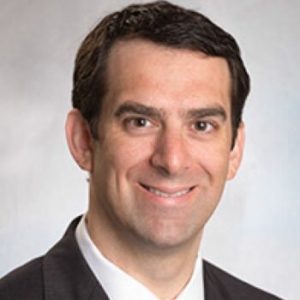Nobody has ever claimed that medicine is being consistently well-taught. Generally the medicine that is taught in medical school and beyond is out of date and dryly delivered to a caffeinated audience. If you have ever had access to a great teacher who passionately and clearly delivered up-to-date knowledge, inspiring you to take that knowledge and learn more on your own, you know how fortunate you were to find such a mentor.
Explore This Issue
ACEP News: Vol 32 – No 01 – January 2013Podcasts have changed that. Now we are all that lucky. Now we all have access to that once rare experience whenever we want it. There is a growing abundance of podcasts available free or at low cost online, along with links to detailed show notes, relevant papers, and often fiery discussion forums inspired by the content. There is a great democracy at work in the brave new world of podcasting, and people are voting with downloads. Sure, anyone with a computer and an internet connection can make a podcast. Yet only through the power of word of mouth (or blog or social media), have a few excellent podcasts emerged as essential, not ex officio, but by merit. This is in direct contrast to the old mode, wherein past fame gained a microphone or a chapter in a book, often warranted, but sometimes not.
Podcasters must deliver an impressive product to be successful. Delivering up-to-date knowledge is not enough. Being a great teacher is not enough. Being entertaining is not enough. You have to have all three, or else no one will listen. Being famous doesn’t even help. If Dr. Oz started podcasting, no serious doctor would listen.
Just like textbooks, articles, blogs, and talks, podcasts are only as good as the credibility of the authors. But unlike the others, if a podcaster makes an error or says something controversial, droves of listeners will reply via blogs, Twitter, or even in person at conferences. Unlike chapters, podcasts won’t be revised by authors in the future. They will be deleted wholesale and re-recorded from scratch, with no unnecessary carry over from previous editions.
Is there anything special about podcasts? Or is the podcast just the latest in a seemingly endless evolution of disseminating the same old message? Give someone the latest in technology, be it a soap box, a pen, a typewriter, a mic, a computer, a PowerPoint, a blog, or a podcast, and the same thing happens. Someone who thinks he knows more than you will try to tell you something you didn’t know. What to do with that information is up to you.
What makes podcasts special is not only intrinsic but cultural. The first generation of podcasters consists mainly of evidence-based medicine loving progressive doctors willing to cite evidence or actively debate practices which haven’t been or can’t be studied. Moreover, podcast listening can be as passive or active as the listener needs.
At the extreme end, genuine mentorship is possible. By his own account, I interact with Minh Le Cong in Australia (Pre-Hospital and Retrieval Medicine podcast creator) more often than some of his residents do! David Newman (SmartEM) is one of my closest mentors, and yet, as of this writing, I’ve still never worked a shift with him.
As Marshall McLuhan famously said, the medium is the message. And the message is that excellent medical education is no longer the privilege of a few; it is now only one click away and free to us all. Podcasts are becoming as essential as (but should not entirely replace) other indispensable learning modes such as books, journals, lectures, conferences, and blogs. For a list of great podcasts, check out my growing list at http://academiclifeinem.blogspot.com
Dr. Faust is an EM resident at Mount Sinai Hospital, New York, and tweets about #FOAMed and classical music @JeremyFaust
Pages: 1 2 | Multi-Page





No Responses to “The medium is the message”